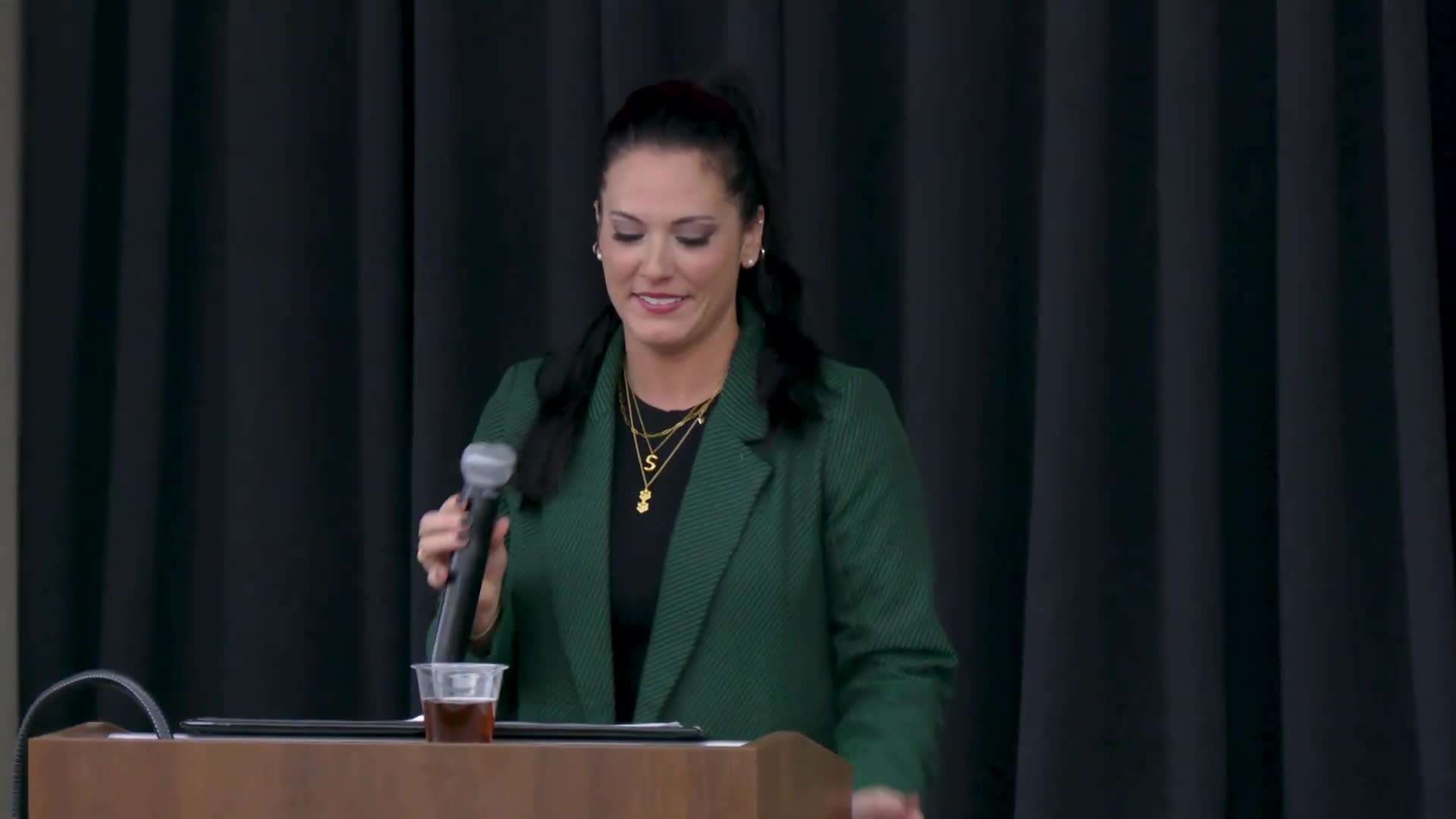Orland Park mayor warns of debt risk, outlines police expansion, AI permitting and drone first-responder program
Get AI-powered insights, summaries, and transcripts
Subscribe
Summary
Orland Park Mayor Jim Dodge told the chamber the village will pursue cost reductions and targeted investments to limit a projected rise in debt while expanding public-safety staffing and piloting technology to speed permits and emergency response.
Orland Park Mayor Jim Dodge told members of the Orland Park Area Chamber of Commerce that the village is pursuing a mix of cost reductions, targeted investments and new technology to improve services while limiting future debt.
"Elections have consequences," Dodge said as he reviewed a SWOT-style analysis and the village's immediate priorities, adding the administration will work to reduce a projected total debt scenario he said could reach $271,000,000 if left unchecked. "You simply can't out price yourself versus Tinley Park versus Will County," he said, urging fiscal restraint and clearer strategic planning.
The mayor outlined steps already taken: a recent insurance RFP for staff health and liability coverages that he said will yield roughly $1 million in near-term savings and a cooperative arrangement he estimated could produce about $7.5 million in savings over five years. He said staff completed audits and the village is adjusting capital and project plans to avoid avoidable infrastructure costs.
Dodge framed public safety as a near-term investment priority. The village will move officers to 12-hour shifts to improve schedules and, he said, increase deployable officers so a typical shift will have 11 officers in the field (he described the current pattern as "8, 10, and 8"). "We're going to be more aggressive about enforcing" traffic problems residents complain about, he said.
The mayor described several technology pilots intended to speed service delivery. One example he credited to a Google employee who built an "agentic AI" tool that ingests state building codes and local amendments; Dodge said the village is exploring using AI to speed routine permit reviews and to make the website more responsive to customer questions. "There's no reason why...you should be able to get a simple permit like for us, a driveway rebuild in 3 seconds," he said as an aspirational example.
On public-safety technology, Dodge showed a short demonstration of the village's drone-as-first-responder capability. He said Orland Park now keeps eight drones available in police vehicles that can be launched by dispatch and carry infrared cameras to help locate missing persons and provide situational awareness before officers arrive.
Dodge described other operational decisions: the village declined a proposed large outdoor display ("we didn't buy the jumbotrons") and reconfigured a park plan to avoid costly infrastructure relocations, saving millions in projected construction costs.
He also described active and proposed development projects: data cited by the village show about 13,000,000 visitors to Orland Park annually and roughly 6,000,000 who visit retail destinations; Dodge said the village is working to keep Orland Park "top of the list" for new retailers. He listed several projects in progress or under negotiation, including work tied to Costco’s gas relocation, Weber Grill opening, interest in a roughly 250,000-square-foot retail building at 150th and LaGrange, and progress on reusing the former Sears property.
Dodge said the village recently purchased a property that residents had identified as a problem (described in the meeting as a repossessed auto lot or "junkyard") to prevent ongoing blight and to enable stronger enforcement and a subarea plan tied to floodplain restoration. He described the acquisition as an aggressive, costly step intended to protect nearby residential areas and enable broader redevelopment discussions.
On facilities, the mayor said Centennial Park West lacks a current business plan and cited the venue’s roughly $15 million construction cost plus an additional $9 million of related interest as a financial issue the village must address. He and trustees also discussed studying an "Eastern Field House" and a potential performing-arts venue, but he emphasized the village will seek business plans and community input before committing significant funds.
Dodge took public questions on topics including county delays in issuing property tax bills, strategies to create housing that appeals to both downsizing seniors and first-time buyers, inclusion of nonprofit service providers in planning, the long lead time and high cost of a Wolf Road interchange (he described it as a 10–15 year, multimillion-dollar project) and the "Andrew" property, which has contamination that makes residential reuse more expensive than commercial redevelopment.
The mayor closed by asking businesses and residents to contact village officials with ideas and by praising staff and intergovernmental cooperation. He described the broader approach to governance as focused on "communication, transparency and trust."
